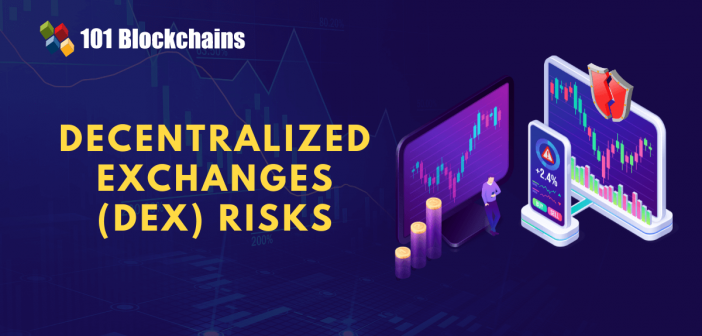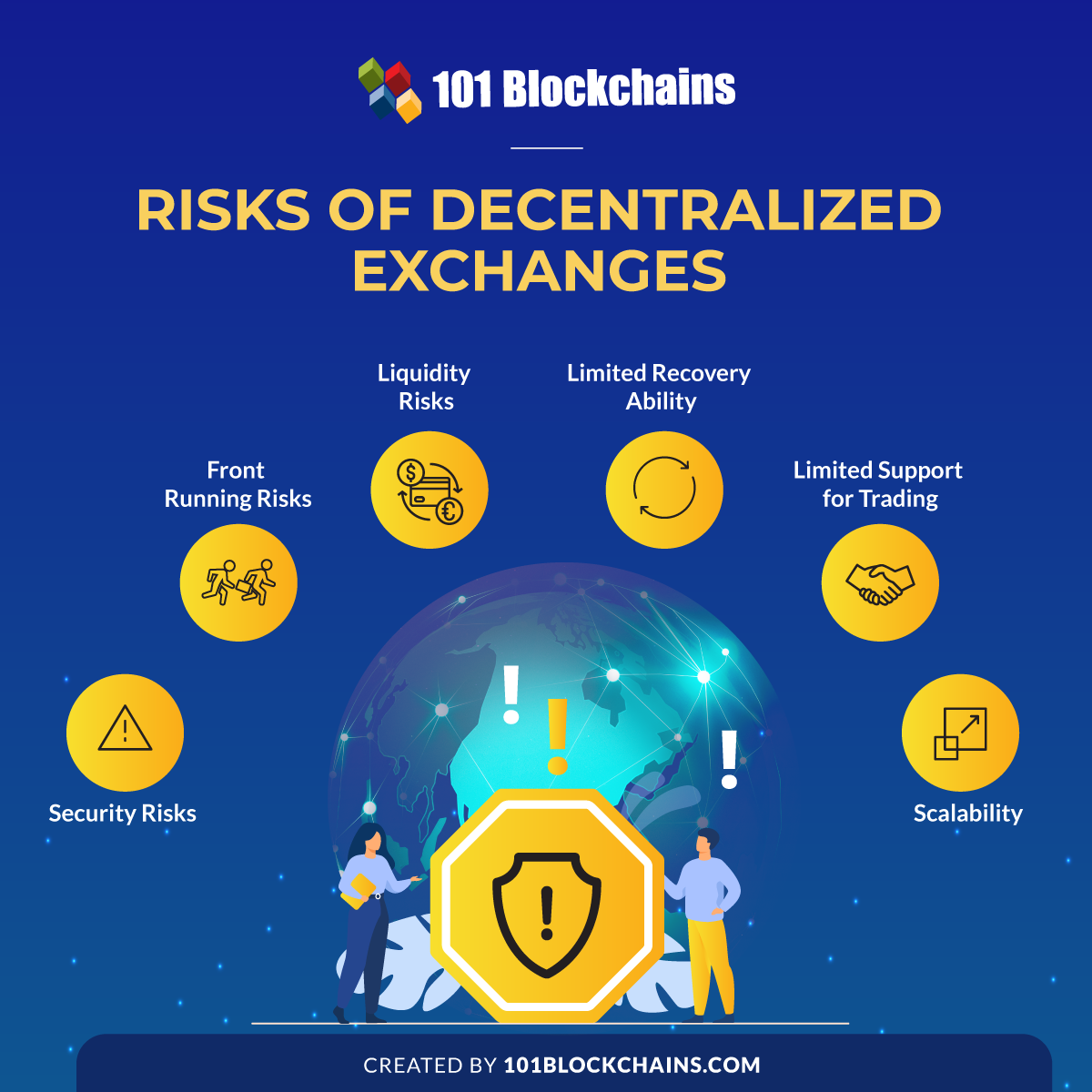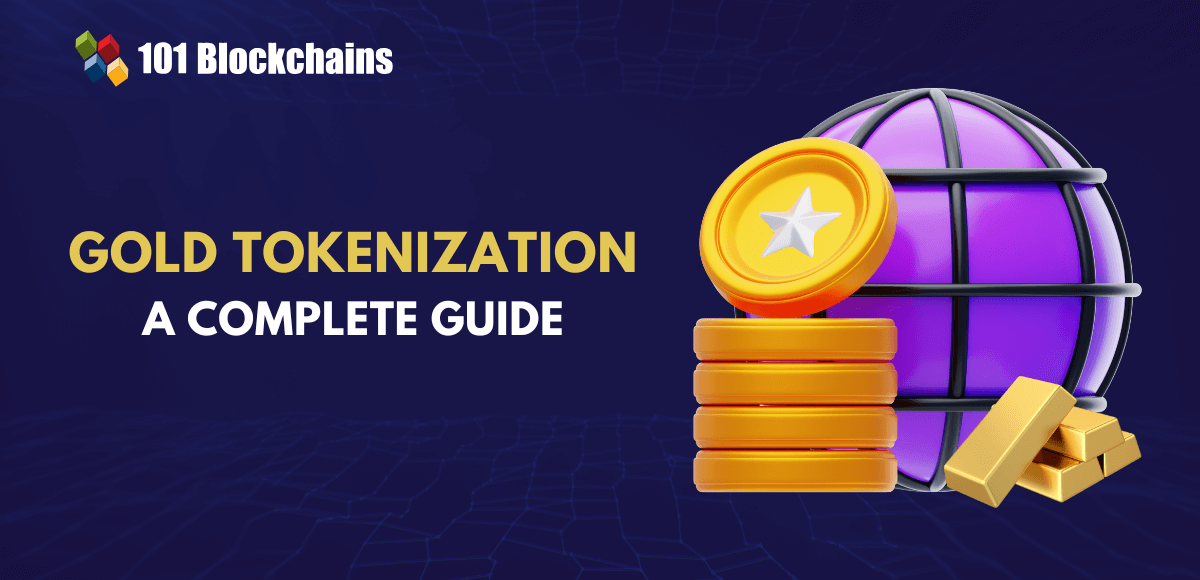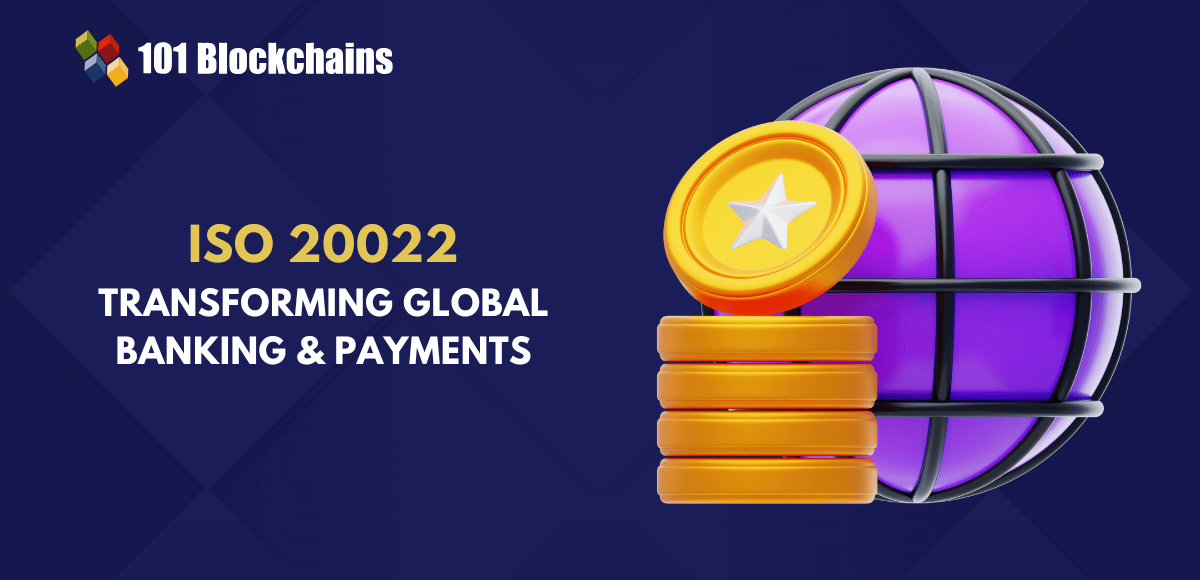Learn how blockchain truly works, master key definitions, and uncover what makes smart contracts so "smart." Dive into the fundamentals, gain valuable insights, and start your blockchain journey today!

- Guides
Georgia Weston
- on December 17, 2021
Decentralized Exchanges (DEX) Risks That You Can’t Ignore
The introduction of decentralized exchanges changed many conventional precedents in the crypto landscape. With the introduction of decentralized exchanges, crypto holders could now move over the centralized exchanges by taking complete control of their assets. However, the rising use of decentralized exchanges has been responsible for radical growth in attention towards DEX risks apart from their advantages. The examples of the hearings related to GameStop trading volatility showcase doubtful perceptions regarding mainstream adoption of decentralized exchanges or DEX. The following discussion helps you obtain a clear impression of decentralized exchanges risks before you use one.
Enroll Now: Introduction to DeFi – Decentralized Finance Course
What are Decentralized Exchanges?
Decentralized exchanges, as the name implies, offer decentralized currency exchange. They allow users to purchase crypto through direct P2P crypto transactions through a secure online platform without leveraging intermediaries. You can find a considerably drastic difference from the traditional centralized crypto exchanges, which involved a third-party entity taking custody of user funds.
The centralized exchanges had third-party entities monitoring the security as well as asset transfer between parties. While decentralized exchanges might look like a promising alternative to their centralized counterparts, it is reasonable to think about the risks in decentralized exchanges. Decentralized exchanges aim to resolve error-prone and inadequate financial systems while having some of their own setbacks.
Doubts about Decentralized Exchanges
The use of decentralized exchanges has definitely presented a new array of possibilities for the DeFi sector. At the same time, people are also wondering about concerns like “are decentralized exchanges safe” for the right reasons. The issues pertaining to market access and discrepancies in methods for individual and institutional investors to access decentralized exchanges are some prominent mentions.
At the same time, the involvement of centralized third-party entities in the working of decentralized exchanges also presents questions. Furthermore, the role of blockchain in empowering decentralized exchanges to facilitate trading has also come under scrutiny. Even if blockchain can support the development of decentralized exchanges, it is important to look out for notable DEX risks before participating in the market.
Want to explore in-depth about DeFi protocol and its use cases? Join Standard/Premium Plan and get free access to Decentralized Finance (Defi) Course- Intermediate Level Now!
Why Do We Need Decentralized Exchanges?
In the first glimpse, one would clearly pay more attention to the advantages of DEX over the risks. However, it is important to wonder about questions such as “Can decentralized exchanges be hacked?” before you put your valuable assets in DEXs. Decentralization should not be the only point of attention for moving towards decentralized exchanges as your first choice.
Presently, you can find a centralized method for completing and settling trades in the United States. The method has a massive array of benefits, albeit with some notable faults. From a basic perspective, the centralized trading exchanges only include the institution or person who wants to purchase or sell a security, counterparty for the transaction, and an entity for settlement.
The settlement entity, in this case, might be the Depository Trust & Clearing Corporation. In addition, some interested third-party organizations such as creditors and regulators could also participate in the process. As a result, all the organizations involved in the centralized trading process could enjoy the benefits of a seamless and equitable trading mechanism.
Decentralized exchanges evolved as the solutions to the problems associated with lack of transparency on market settlement and collateralization processes. In addition, the influence of external third-party firms also set the foundation for developing decentralized exchanges.
However, the transparent P2P alternative in decentralized exchanges can support near a real-time settlement with win-win situations for everyone. Anyone would jump to decentralized exchanges as a reliable answer for issues in centralized trading. On the other hand, you could not undermine the risks in decentralized exchanges before you use them.
Risks of Decentralized Exchanges

Please include attribution to 101blockchains.com with this graphic. <a href='https://101blockchains.com/blockchain-infographics/'> <img src='https://101blockchains.com/wp-content/uploads/2021/12/Risks-of-Decentralized-Exchanges-.png' alt='Risks of Decentralized Exchanges='0' /> </a>
A clear overview of the risks of decentralized exchanges could help in digging deeper into their practical implications. Here are some of the top entries among DEX risks you should be aware of. Read on to learn about the common decentralized exchanges risks.
-
Security Risks
Decentralized exchanges are not completely immune to all threats, and you need to identify the threats clearly to use them wisely. The people who have proposed the decentralized version of crypto exchanges would have focused on private keys. In the case of DEXs, the private keys are a notable reason for concerns like “are decentralized exchanges safe.”
Investors could get the privilege of maintaining direct custody of their private keys and showing direct ownership of crypto assets. Therefore, the decentralized exchanges can show a clear difference from the fiat-based options. However, it is important to wonder about the feasibility of such a model in encouraging widespread adoption of DEXs.
The centralized exchanges and different third-party entities provide an important value improvement through the use of custodial services. The custodial services are readily popular among market participants and garner more trust from DeFi participants. With respect to security aspects as Decentralized Exchanges risks, one would wonder whether investors want to take responsibility for managing the assets in their ownership.
Want to build fluency in the best practices for resolving DeFi security risks? Enroll now in DeFi Security Fundamentals Course!
-
Front Running Risks
People are worried about questions like “Can decentralized exchanges be hacked?” to such an extent that they forget crucial concerns. One of the foremost critiques of the existing centralized exchange model refers to the necessity of making payments for order flows. Investors have to pay for order flows in centralized exchanges, which is interestingly a notable mention among DEX risks. Miners or the mining pools could obtain a preview of transactions while confirming and validating them on decentralized exchanges. With the help of these previews, miners could find opportunities for engaging in market manipulation.
You should keep in mind that DEX trading bots scraped more than $100 million in just 30 days. So, there is no way you could undermine the threat of such decentralized exchanges risks to your assets. The practice of payments for order flows has become more commonplace and taken center stage recently.
Therefore, it is reasonable to wonder about threats due to mining pools engaging in market manipulation by front-running trades. In addition, one should also note that DEXs would run on a public blockchain by default. Therefore, you can find the mining pools anywhere in the world, thereby creating geopolitical risks in decentralized exchanges.
Build your identity as a certified blockchain expert with 101 Blockchains’ Blockchain Certifications designed to provide enhanced career prospects.
-
Liquidity Risks
Decentralized exchanges are also vulnerable to risks due to liquidity. Liquidity is an important requirement for all financial instruments and assets traded on a specific exchange. However, the need for liquidity is still a formidable concern for different decentralized exchanges on grounds of different reasons. You could notice that DEX risks related to liquidity emerge from the information gap for non-expert users.
Another important factor leading to liquidity risks on decentralized exchanges refers to the average trading volume on DEXs. The average trading volume continues to be a small share of the trading volume in centralized exchanges. The trading volume in centralized exchanges is higher due to the fact that DEXs are relatively new. At the same time, the overall crypto-economy has not expanded in scope to enable improved trade volume on DEXs.
The liquidity-related decentralized exchanges risks are also a resultant of the decentralized nature of the exchanges. Decentralized exchanges directly imply the fragmented nature of the market, thereby creating issues in interoperability. Furthermore, decentralized exchanges also lead to issues in speed of transaction settlement and transparency in the elements of cost and pricing.
-
Limited Recovery Ability
The doubts about “are decentralized exchanges safe” could find some promising answers in the fact that DEXs do not have any ability to recover lost, misplaced, or stolen funds. The lack of a KYC process and the ability to cancel transactions generally leads to issues in recovering data or their assets. You could not rely on a support team for notifications about a lost private key or missing funds. Refunds are incompatible with the general smart contract-based model of DEX networks, thereby creating issues in recovery.
Curious to understand the complete smart contract development lifecycle?Enroll in Smart Contracts Development Course Now!
-
Limited Support for Trading
Another formidable setback associated with decentralized exchanges refers to the limited functionality for trading. How? The DEX risks of reduced transaction settlement speed could create obstacles for participating in trading on DEXs. Furthermore, decentralized exchanges have become popular only in recent times with a focus on simple purchasing and selling orders. On top of it, users could not find advanced functionalities for trading such as lending, stop losses, and margin trading on majority of decentralized exchanges
-
Scalability
The final addition among risks in decentralized exchanges would turn the focus towards scalability issues. Decentralized exchanges or DEXs have frequently experienced the issues of network congestion due to scalability concerns. With blockchain networks such as Ethereum as the foundation of decentralized exchanges, the scalability issues of Ethereum translate effectively to decentralized exchanges.
Without scaling solutions, the decentralized exchanges cannot prepare for mainstream adoption where trading volume would increase by radical margins. DEXs still continue to follow the first-layer network transaction limits, thereby causing discrepancies in scalability. However, DEXs would soon employ transformative network upgrades with scalability solutions for a larger capacity to resolve such issues.
Learn the fundamentals of Decentralized Finance (DeFi) with DeFi Flashcards
Final Words
Decentralization is undoubtedly a major trend in financial markets all over the world. The arrival of DeFi has changed the way people and institutions perceive finance. Starting with the introduction of cryptocurrencies to the arrival of decentralized exchanges, we have been witnessing many radical improvements in financial technology. As the world gears up for decentralized exchanges, a clear impression of DEX risks becomes imperative.
You need to understand how decentralized exchanges can present the risks of security, liquidity, and front-running trades. In addition, you can also discover other risks such as limited functionality for trading and problems with scalability. The understanding of risks associated with decentralized exchanges can provide vital insights for identifying possibilities for improvement. Learn more about decentralized exchanges and how to address the risks associated with them.
*Disclaimer: The article should not be taken as, and is not intended to provide any investment advice. Claims made in this article do not constitute investment advice and should not be taken as such. 101 Blockchains shall not be responsible for any loss sustained by any person who relies on this article. Do your own research!






